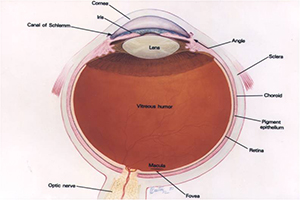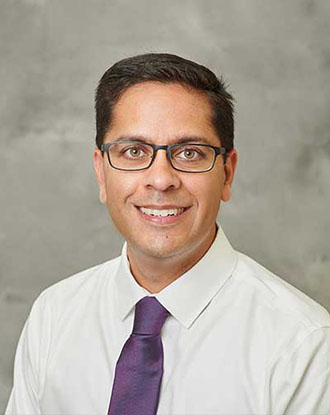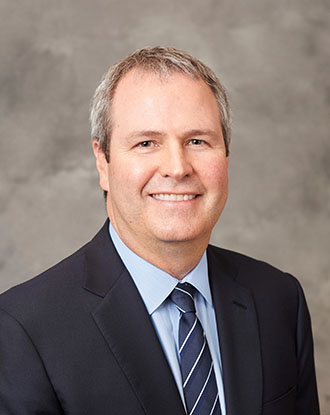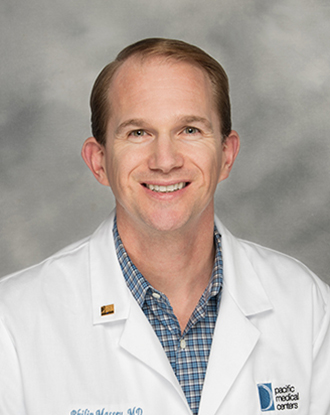da Vinci® Robotic-Assisted Surgery
Pacific Medical Centers is pleased to offer da Vinci® robotic surgery to patients in our Urology department. With this minimally invasive technology, patients can get back to their lives quickly—in days rather than weeks. And that means a faster return to work, school, hobbies and other activities.
Unlike open surgery, a procedure using the da Vinci system requires only very small incisions, so scars are minimized. Because the surgery is less invasive, patients report better pain control. They also experience a lower risk of infection, minimized blood loss, a reduced threat to nearby nerves and organs, and fewer postoperative complications.
PacMed uses the da Vinci robotic surgical system. This sophisticated system uses a high-definition, 3-D camera. This gives the surgeon a magnified, high-resolution 3-D image.
During surgery, the surgeon’s hands do not enter the patient. Instead, the surgeon sits several feet away at a specialized console and maneuvers tools remotely. The surgeon creates several “keyhole” incisions, through which the camera and tools are inserted. The system cannot move or make decisions on its own; the surgeon is in charge of every action.
What are the benefits of robotic surgery?
Consultations and Locations
Your surgeon and professional staff will discuss your procedure with you and answer your questions. Surgeries are conducted by PacMed providers at either Virginia Mason Medical Center or Swedish Medical Center.
General Surgery/Colon, Rectal and Anal Surgery:
You can read more about General Surgery and Colon, Rectal and Anal Surgery on their webpages. PacMed surgeries using the da Vinci robotic surgical system include:
- Inguinal hernia
- Incisional hernia
- Rectopexy
- Colectomy
Urology
Urology consultations are offered at our First Hill, Canyon Park and Renton clinics. You can read more at the Urology web page. PacMed urological surgeries using the da Vinci robotic surgical system include:
- Kidney, prostate and bladder cancers
- Cystectomy (removal of all or some of bladder)
- Nephrectomy (removal of the kidney)
- Partial nephrectomy
- Prostatectomy
- Pyeloplasty (repair of kidney obstruction)
All of our surgeons are board certified or board eligible in their specialty and surgical subspecialty. In addition, all have specialized training in da Vinci robotic surgery. Dr. Pick completed a two-year fellowship in Endourology, Laparoscopy and da Vinci Robotic Surgery.
Corneal Diseases and Surgery
Pacific Medical Centers has in-house, board-certified ophthalmologists. Among these specialists, we have a cornea and refractive surgeon. Our specialist has extensive training, which includes a fellowship focused solely on the diagnosis and treatment of corneal diseases and advanced refractive surgery techniques, including LASIK. This is in addition to the completion of a three-year ophthalmology residency approved by the Accreditation Council for Graduate Medical Education (ACGME). This level of training allows our specialist to diagnose and treat a broad range of eye conditions.
Ocular Anatomy
The cornea is the clear window of the eye. It is composed of five layers that work to maintain the cornea’s transparency, shape, and thickness to allow it to properly focus light as it enters the eye.

Some conditions and diseases that should be seen by a corneal specialist include:
Fuchs Endothelial Dystrophy
Fuchs Endothelial Dystrophy is an inherited disease that causes progressive swelling of the cornea and cloudy vision. As the eyes age, the defective corneal endothelial cells are unable to keep the cornea clear. Fortunately, a partial corneal transplant, called a Descemet’s Stripping Automated Endothelial Keratoplasty (DSAEK), can successfully replace the inner cornea layer with donor endothelial cells to restore function of the cornea.
Keratoconus
Keratoconus is a condition in which the cornea becomes progressively thinner. The abnormal corneal shape causes increasing astigmatism and near sightedness, and in severe cases, the cornea can become cone shaped. Some cases of keratoconus may stabilize, requiring only glasses or rigid gas permeable contact lenses. More severe cases may require cornea transplant procedures called a Penetrating Keratoplasty (PK) or Deep Anterior Lamellar Keratoplasty (DALK). Newer treatments of collagen crosslinking are currently undergoing research and may slow the progression of keratoconus in select cases.
Dry Eyes
Dry eye syndrome is one of the most common ocular conditions affecting patients. The normal tear film functions to create a smooth interface over the corneal surface to focus rays of light. A healthy tear film provides nutrients and oxygen to the cornea and protects against infections. With dry eyes, the tear film is unstable, causing symptoms ranging from mild irritation to constant foreign-body sensation and blurry vision. Certain drugs, medical conditions and increasing age cause a decrease in baseline tear film production. Blepharitis, which is a common inflammation of the eyelid’s oil glands, may also contribute to dry eye syndrome. These oil glands secrete an essential lipid layer to prevent rapid evaporation of the tears.
Treatment begins with using over-the-counter artificial tears. Thicker lubricating ointments or gels can be used before going to bed. Punctal plugs can occlude the tear drainage holes, helping to prolong the actions of tears. Prescription medications are sometimes indicated in severe dry eyes.
Corneal Infections
Bacterial and viral infections are common pathogens that may cause corneal ulcers. Herpes Simplex Virus is one of the most common recurrent infections of the cornea, often requiring long-term treatment. Varicella Zoster Virus, which causes shingles and chicken pox, may also infect the eye or eyelids. Adenoviral viruses are the cause of common pink eye infections; however, certain virus strains cause a more severe infection called epidemic keratoconjunctivitis.
Bacterial infections of the cornea are commonly due to poor contact lens hygiene or trauma. These can result in painful corneal ulcers and scarring, which require prompt treatment with proper antibiotic eye drops. In severe cases, a cornea transplantation may be needed.
Colonoscopy
The American Cancer Society estimates that the lifetime risk for developing colorectal cancer is about 1 in 20, with both men and women being at equal risk.
Symptoms
- Change in bowel habits
- Rectal bleeding or blood in your stool
- Persistent abdominal discomfort
- Nausea or vomiting
- Unexplained weight loss
- Chronic fatigue
What you can do
- Get screened at age 50, or sooner if you are at higher risk
- Maintain a healthy weight
- Adopt a physically active lifestyle
- Eat a healthy diet
- Stop smoking
- Limit alcohol intake
When found early, colorectal cancer is easier to treat and highly curable. So why do thousands of cases in the United States go undiagnosed each year, often resulting in premature death?
With proper screening, colorectal cancer can be detected early. Screening can also help eliminate pre-cancerous polyps that could become cancerous if left to grow.
The American Cancer Society recommends that people age 45 or older be screened for colon cancer. One important screening test is a colonoscopy. This 15- to 30-minute test enables a doctor to look inside the entire large intestine and into the rectum through a long, flexible, narrow tube with a light and tiny lens on the end. The physician can see things such as abnormal growths and inflamed tissue. While the test is most often used to look for early signs of colorectal cancer, it is also used to look for causes of unexplained changes in bowel habits and to evaluate symptoms like abdominal pain, rectal bleeding and weight loss.
At Pacific Medical Centers, patients can call 1.844.66COLON (1.844.662.6566) and schedule an appointment with one of our gastroenterologists to discuss colonoscopy and other methods of screening for colon cancer.*
Our physicians meet with patients at four of our conveniently located clinics. Procedures are performed at the Pacific Medical Center Ambulatory Surgery Center on First Hill in Seattle, the Swedish Ambulatory Surgery Center in Redmond, and the Swedish Issaquah campus.
*Always check with your insurance provider to find out if you need pre-authorization or to determine the level of coverage your carrier provides for colonoscopy.
Source for statistics: American Cancer Society
Clinic Locations
Canyon Park
1909 214th Street SE, Suite 300
Bothell, WA 98021
First Hill
1101 Madison St, Suite 301
Seattle, WA 98104
Northgate
10416 – 5th Avenue NE
Seattle, WA 98125
Renton
1801 Lind Ave SW, Bldg D
Renton, WA 98057
Cataract Surgery
PacMed is proud to offer the state of the art in cataract surgery. Our surgeons are experienced in phacoemulsification and also offer femtosecond laser-assisted cataract surgery (LenSx).
Cataract surgery is a great opportunity to treat your astigmatism with advanced technology such as the toric astigmatic correcting intraocular lens or LenSx. We also offer multifocal intraocular lenses for the treatment of presbyopia.
Contact Us
If you have been told you have cataracts and are interested in making an appointment with one of our surgeons, please call 206.505.1350 or make an online appointment.
Cardiology

Cardiology is a specialty that focuses on the diagnosis and treatment of disorders of the heart and blood vessels.
Health problems involving the heart are very common. In fact, a recent study published in the American Heart Association journal Circulation found that more than 50 percent of men and nearly 40 percent of women in the United States will develop coronary vascular disease in their lifetime.
Cardiologists at PacMed work to prevent heart disease as well as to treat it. Your cardiologist may conduct a variety of cardiac tests to gain important information about your heart and circulation.
For example, you may have an exercise tolerance test that involves walking or jogging on a treadmill. This test can detect heart disorders that could be missed while you are at rest.
Another common test is an echocardiogram that takes sound wave pictures of your heart. There are no side effects or pain involved. This test can provide a wealth of information about the four chambers of your heart, problems with your heart valves and the strength of your heart muscle. These and other noninvasive diagnostic ultrasound procedures are performed at our cardiovascular laboratory.
PacMed offers a state-of-the-art nuclear cardiology lab where we perform both treadmill and non-treadmill stress testing with the latest imaging techniques.
After the problem has been diagnosed your cardiologist will develop a treatment plan and work with your primary care provider to manage your ongoing healthcare needs.
Whether this includes medication, lifestyle changes or surgery, your cardiologist will be a primary member of your healthcare team.
PacMed Cardiologists
Behavioral Medicine
You will see instructions for accessing your session in your appointment confirmation. Thank you for your understanding.
Behavioral medicine is a broad term that includes relationship issues, behavioral problems, anxiety, stress, memory disorders, depression, and a range of other disorders. It is important to know that even people with good mental health occasionally need help to cope with problems.
At Pacific Medical Centers, experienced professionals provide comprehensive outpatient care to patients. Your provider will work with you to design an individual treatment plan.
Our services include:
- Adult psychiatry
- Couples therapy
- Family therapy
- Individual counseling including child, adolescent and adult
- Medication management
- Psychiatric evaluation
- Psychotherapy
Having Trouble Sleeping?
When you have insomnia, you can’t get reliable, restorative sleep. But there is hope. One treatment option is called Cognitive Behavioral Therapy for Insomnia (CBT-I). Once you have your insomnia under control, you can participate in daily life more fully and do the things that bring you joy.
CBT-I is a safe, structured approach to treating chronic insomnia, without the use of prescription medications. With CBT-I, you meet regularly with a behavioral health therapist. You work together to understand and overcome the underlying issues that are keeping you awake.
Many studies show that CBT-I can create durable change. We have therapists who are trained in CBT-I. To learn more, please make an appointment with your PacMed primary care provider.
Please call 1.206.621.4045 to find out more and schedule an appointment.
Allergy and Immunology

Our Allergy and Immunology specialists have been named Seattle Top Docs!
Our Allergy and Immunologist:
John B.K.K. Yuen, MD, FACP, seeing patients since 2001
Allergens—the substances that cause the allergic reaction or disease—can be as complex as the diseases and conditions they cause. At Pacific Medical Centers, our allergy specialists provide the very best treatment available. Whether it’s hay fever (allergic rhinitis), asthma, a bee sting allergy or a skin rash (eczema), Pacific Medical Centers’ allergy specialists treat conditions in which the body’s immune system reacts abnormally to a substance.
Dr. Yuen additionally treats lupus and other autoimmune conditions. He can support those who live with autoimmune conditions to help them understand and manage allergens and reactivity to them.







